Introduction
Have you ever caught yourself staring in the mirror, picking apart every little flaw, wondering why you can’t just be “enough”? Yeah, I’ve been there too – like that time in college when I bombed a presentation and spent the whole night replaying it, convinced everyone saw me as a total failure. Self-acceptance isn’t some fluffy buzzword; it’s that quiet power to embrace your quirks, mistakes, and all the messy bits without constant judgment. In this article, we’ll break it down starting with what it really is and why it packs such a punch for your happiness, then spot those sneaky signs you’re lacking it, dig into the causes from inside your head to the world around you, and compare it to stuff like perfectionism or imposter syndrome that often gets mixed up.

If you’re into building better emotional walls, check out our piece on setting healthy boundaries – it’s a game-changer for protecting your vibe. For a deeper scientific take, head over to this Psychology Today article on self-acceptance. And hey, stick around for our free self-check quiz coming up to see where you stand. To kick things off visually, here’s a prompt for an infographic:
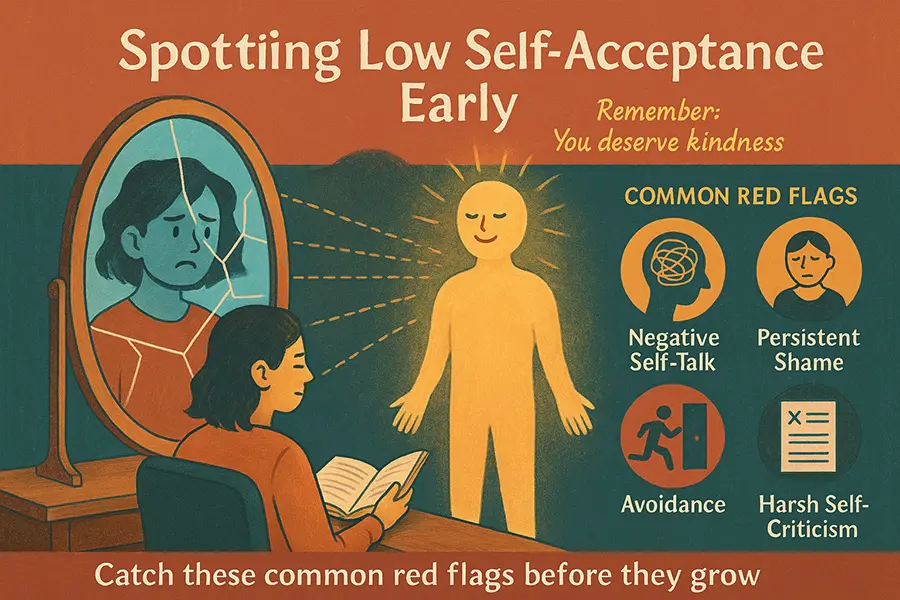
It’s funny how we chase perfection, but real peace comes from just saying, “This is me, and that’s okay.” Let’s dive deeper into what self-acceptance truly looks like.
What Is Self-Acceptance and Why Does It Matter?
Self-acceptance? It’s like giving yourself a big, no-strings-attached hug every day, flaws and all. I remember hiking alone in the mountains once, feeling the crisp air and realizing for the first time that I didn’t need to prove anything to anyone – that moment shifted everything for me. Why does it matter? Well, without it, you’re basically running on empty, always seeking validation from outside, which leaves you exhausted and anxious. But when you got it, life flows easier; relationships get realer, and you bounce back from setbacks like a pro. Studies show it boosts mental health big time, reducing stress and even helping with stuff like depression.
Think about it – in a world bombarding us with “ideal” images on social media, accepting yourself is almost rebellious. And yeah, it’s not about stagnation; it’s the foundation for genuine growth. Ever wondered if you’re too hard on yourself? That’s where we head next.
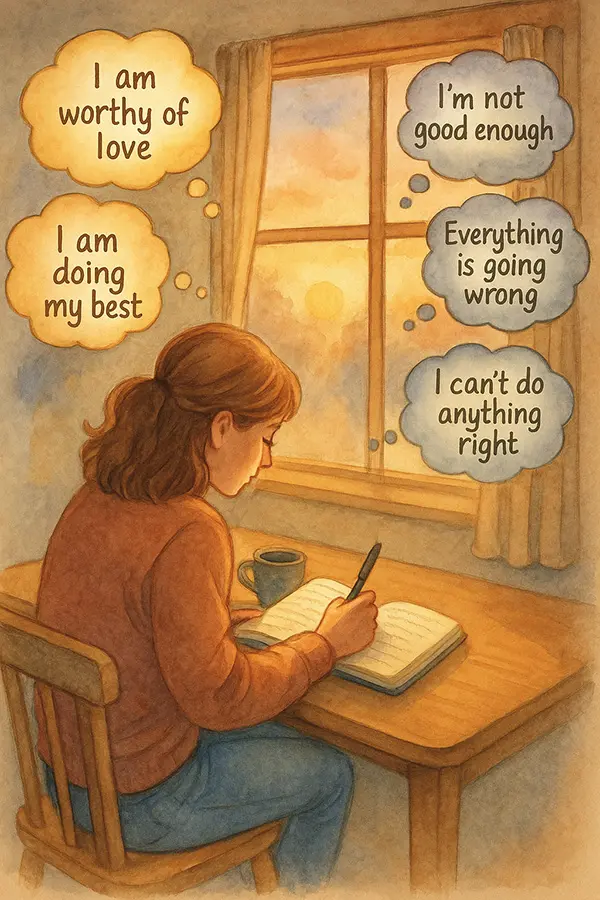
Defining Self-Acceptance
The True Meaning of Self-Acceptance
At its core, self-acceptance means owning every part of you – the good, the bad, and the downright awkward – without trying to hide or fix it right away. It’s not ignoring your rough edges; it’s acknowledging them with kindness, like telling a friend, “Hey, that’s just part of what makes you you.” I once chatted with a therapist who said it’s like treating yourself as a whole person, not a project. From a neuro perspective, it calms the amygdala, that fear center in your brain, letting dopamine flow freer for better moods. And hormonally, less cortisol means less stress eating away at your confidence.
But here’s the twist: it’s unconditional. No “I’ll accept myself when I lose 10 pounds” nonsense. That mindset? It just fuels more dissatisfaction. In cultures where self-criticism is praised, like some high-pressure work environments, this can feel foreign, but trust me, it’s liberating. For folks in the LGBT+ community, it often means navigating extra layers – like accepting your identity amid societal pushback, which can be a powerful act of defiance and healing. I know someone who came out later in life and said embracing that truth was the biggest step toward peace they’d ever taken.
Self-Acceptance vs. Self-Esteem: Key Differences
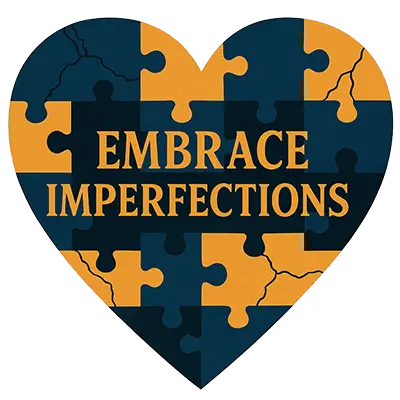
Okay, let’s clear this up – self-acceptance and self-esteem aren’t twins; they’re more like cousins. Self-esteem is that fluctuating feeling of worth based on achievements, like feeling on top after a promotion but crashing when things go south. Self-acceptance? It’s steady, not tied to wins or losses – it’s saying, “I’m valuable, period.” One’s conditional, the other’s rock-solid.
Picture this: after a bad breakup, my self-esteem tanked, but building acceptance helped me see it wasn’t about my worth – just a mismatch. The difference matters because chasing esteem can lead to burnout, while acceptance fosters resilience. In therapy terms, esteem might spike serotonin short-term, but acceptance rewires neural paths for long-haul happiness. If you’re in a field like tech, where imposter feelings run high, acceptance trumps esteem every time. Curious how this plays out daily? Hang tight.
Signs of Low Self-Acceptance
Common Indicators You Might Be Struggling
Spotting low self-acceptance isn’t always obvious – it’s those quiet habits that sneak up. Things like constant self-criticism, where every mistake feels like a personal attack, or avoiding mirrors because you can’t stand the reflection. You might downplay compliments, thinking “They don’t really mean it,” or feel unworthy of good things happening. I used to do that at parties, brushing off praise like it was a joke.
Other signs? Perfectionist tendencies that leave you paralyzed, or people-pleasing to avoid rejection. 😩 And yeah, physical stuff too – tension in your shoulders from always bracing for judgment. In the LGBT+ space, it might show as internalized shame, questioning your validity in relationships or communities. But hey, recognizing these is the first step – it’s not a life sentence.
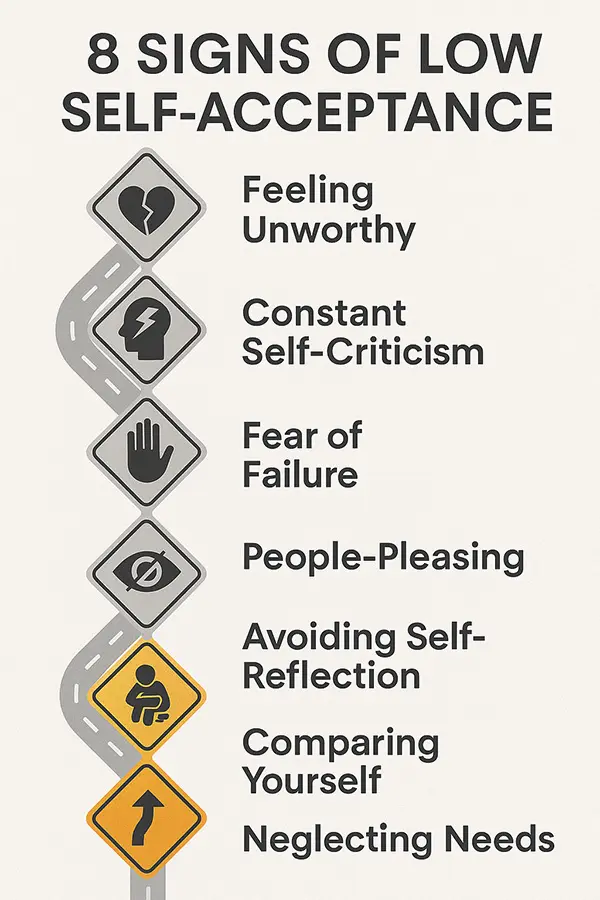
How Low Self-Acceptance Shows Up in Daily Life
In everyday stuff, it creeps in like fog. Maybe you skip social invites because “Why would they want me there?” or overwork to prove your value, ending up burnt out. At home, it’s snapping at loved ones from built-up frustration, or scrolling endlessly comparing lives. Remember that rainy afternoon I spent obsessing over a minor work error? That’s it – turning small stuff into mountains.
It affects health too: poor sleep from rumination, or neglecting self-care because “I don’t deserve it.” But flipping this? Starts with awareness. For more on balancing daily energy, peek at our body and energy tips. And externally, check this Verywell Mind guide. 😂 Sometimes, it’s as simple as laughing at your own quirks instead of hiding them.
Now, why does this happen? Let’s root it out next.
Causes and Roots of Self-Acceptance Issues
Internal Factors That Hinder Self-Acceptance

Inside your mind, it’s often old scripts playing on loop – like that inner critic born from childhood doubts or past failures. Genetic stuff plays a role too; some folks are wired more anxious, making acceptance harder. Negative self-talk? It’s a killer, reinforcing beliefs you’re not enough. I fought this after a failed business venture, blaming myself endlessly until I realized it was just a lesson, not my identity.
Hormones chime in – low serotonin can amp up self-doubt. And cognitively, biases like focusing on negatives skew your view. But get this: mindfulness can rewire that, per neuroscience. It’s not fixed; it’s flexible.
External Influences and Societal Pressures
Outside? Society’s a big bully sometimes. Media shoving “perfect” bodies or success stories makes us feel lacking. Family dynamics – critical parents or siblings – plant those seeds early. Work cultures demanding flawlessness? Yeah, they erode acceptance fast. In diverse groups, like LGBT+ folks facing discrimination, external invalidation hits hard, forcing extra work to reclaim self-worth. A friend shared how workplace microaggressions chipped away until therapy helped rebuild.
Cultural norms vary too – some emphasize humility to a fault. But resisting? Key to thriving. For digital detox ideas, see our digital wellness post. And for science, this external study on societal impacts.
How does this stack against other mind traps? Let’s compare.
Comparing Self-Acceptance to Similar Challenges
Self-Acceptance vs. Perfectionism
Perfectionism’s that relentless drive for flawless, but it clashes hard with acceptance – one demands constant improvement, the other says “You’re good as is.” I was a perfectionist in school, rewriting essays til dawn, but it left me empty. Acceptance lets you strive without self-flagellation. Evolutionarily, perfectionism might stem from survival instincts, but in modern life, it’s maladaptive, spiking cortisol levels per psych studies.
The joke? Perfectionists often achieve less because fear paralyzes. Acceptance? Fuels real progress.
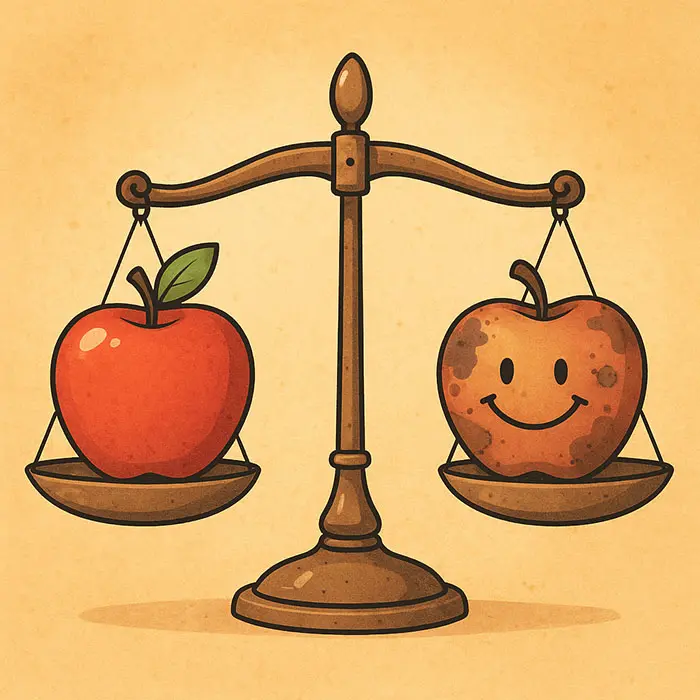
Self-Acceptance vs. Imposter Syndrome
Imposter syndrome tricks you into thinking you’re a fraud, undeserving of success, while acceptance counters with “Own your wins, flaws included.” It’s common in high-achievers; I felt it during my first job promotion, waiting for the “gotcha” moment. But acceptance builds evidence against those doubts.
Neurologically, imposter fires up the fear circuit, but acceptance soothes it via self-compassion practices. In gender or minority contexts, it’s amplified by biases, making acceptance a vital shield. For growth strategies, link to our self-awareness guide. And this Forbes piece on overcoming imposter.
From a scientific lens, self-acceptance ties into positive psychology, where embracing the self holistically – via mindfulness reducing amygdala activity and balancing hormones like oxytocin for connection – leads to lower anxiety and higher life satisfaction. It’s not woo-woo; it’s backed by brain scans showing thicker prefrontal cortices in those who practice it.
As we wrap this part, remember these foundations set the stage for real change. But how do you build on them? That’s where practical steps come in next time.
Stages of Building Self-Acceptance
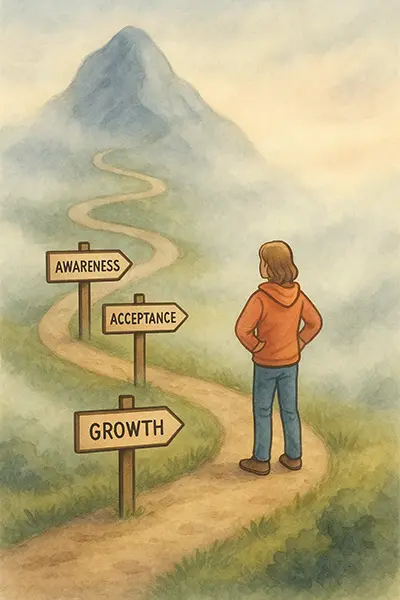
Alright, so we’ve dug into why self-acceptance matters and what trips us up, but now let’s get real about building it. It’s not some overnight magic; think of it as climbing a hill where each step feels a bit steadier. I recall this one afternoon in therapy, staring at my notes, realizing it all starts with just seeing things as they are. From there, you hug the messy parts, and finally, you move forward without dragging old baggage. We’ll break it down into awareness, acceptance, and growth – simple stages that pack a punch.
Awareness: Recognizing Your Current State
First off, awareness is like flipping on a light in a dark room – suddenly you see the clutter you’ve been tripping over. It’s about noticing those nagging thoughts, like “I’m not good enough,” without judgment yet. I was at a coffee shop once, journaling, and bam, I caught myself replaying a work mistake from weeks ago. That’s awareness kicking in. Start by tracking your self-talk for a day; jot down when it’s harsh. For folks in high-stress jobs, this might mean spotting burnout signs early. And hey, if you’re part of the LGBT+ community, awareness could involve unpacking internalized biases from society, like questioning your worth in relationships – it’s tough, but naming it helps heal.
From a neuroscience angle, this stage lights up the prefrontal cortex, helping regulate emotions and reduce amygdala freak-outs. Studies show mindfulness here lowers cortisol, making room for clearer thinking. It’s like rewiring your brain to spot patterns without spiraling. Once you see it, embracing comes next.
Acceptance: Embracing Imperfections
Now, acceptance isn’t about liking every flaw; it’s more like saying, “Okay, this is part of me right now.” Picture hugging that awkward kid inside you who trips over words at parties – I did that after a botched date, laughing it off instead of beating myself up. Try standing in front of a mirror, listing three things you usually criticize, then whispering, “I accept you.” Sounds cheesy, but it works. In cultures pushing perfection, this feels rebellious, especially for women juggling roles.
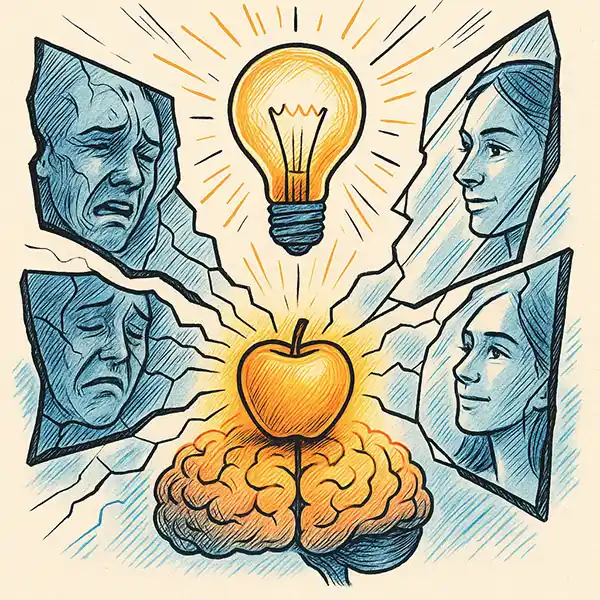
Brain-wise, self-compassion practices here boost oxytocin, that bonding hormone, easing self-criticism circuits. It’s proven to cut depression risks by fostering neural plasticity. But don’t stop at hugging flaws; use it to fuel growth ahead.
Growth: Turning Acceptance into Action
Growth flips acceptance into steps forward – like using your quirks as strengths. After accepting my procrastination habit, I started small timers for tasks, turning it into focused bursts. Think of it as planting seeds in fertile soil; awareness and acceptance prep the ground. Set tiny goals, like complimenting yourself daily, and watch confidence build. For career shifters, this means leveraging past “failures” as lessons.
Psychologically, this stage engages dopamine rewards, motivating sustained change via habit loops. Neurons fire together, wire together – consistent action strengthens positive paths. And with that cycle in mind, let’s visualize it.
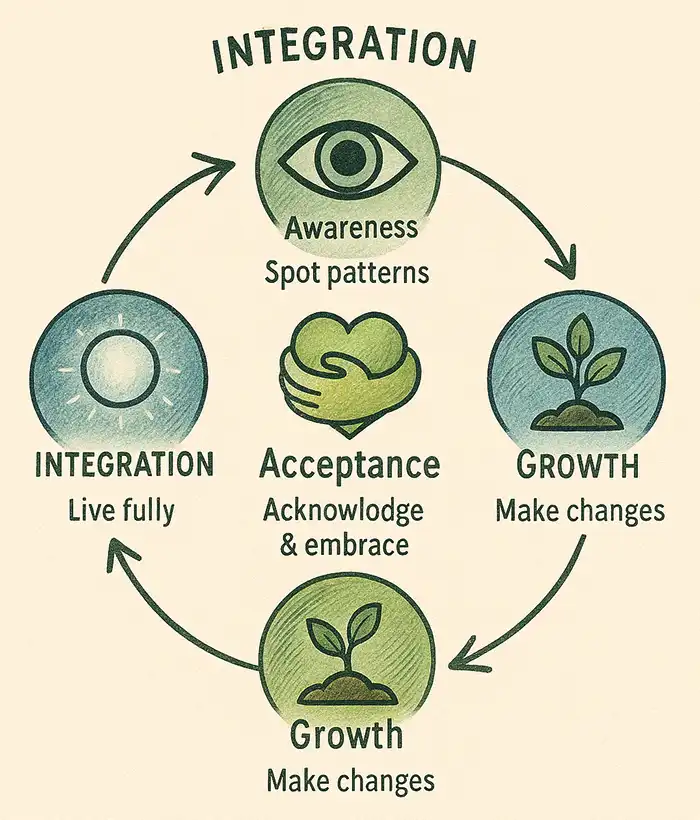
Practical Tools and Exercises for Self-Acceptance
Tools? Oh, they’re the fun part – stuff you can try today without fancy apps. I remember grabbing a notebook during a rough week, and these prompts changed everything. We’ll hit journaling, mindfulness, and affirmations. Pair ’em with our emotional healing strategies for extra oomph.

Daily Journaling Prompts
Journaling’s like chatting with your wiser self. Try: “What did I do well today, even if small?” or “What’s one imperfection I’m okay with?” I scribbled about my fear of public speaking one night, and it lost its grip. Do it mornings or before bed; consistency’s key. For busy parents, sneak in five minutes – it’s doable.
Mindfulness Techniques to Try Today
Mindfulness grounds you in the now, away from self-judgment. Simple one: the 5-4-3-2-1 grounding – name five things you see, four you touch, and so on. I used it during a panic attack in traffic, feeling the wheel’s texture calm me. Or body scans: lie down, notice tension without fixing. Check this Verywell Mind guide on radical acceptance for more. It rewires attention, per neuro studies, reducing default mode network rumination.

Affirmations and Visualization Practices
Affirmations aren’t just fluffy; say “I am enough as I am” in the mirror daily. Visualize succeeding despite flaws – I pictured nailing an interview, jitters and all. Combine with breathing: inhale acceptance, exhale doubt. For LGBT+ folks, tailor like “My identity is valid and strong.” Science backs it; affirmations activate reward centers, boosting serotonin. Ready for a challenge?
🟨 Box: Printable worksheet: 7-Day Self-Acceptance Challenge
Day 1: Journal three strengths.
Day 2: Practice 5-min mindfulness.
Day 3: Mirror affirmation session.
Day 4: Forgive one past mistake.
Day 5: Set a boundary kindly.
Day 6: Visualize a confident day.
Day 7: Reflect on progress. Print and track – link to our self-awareness growth page for templates.
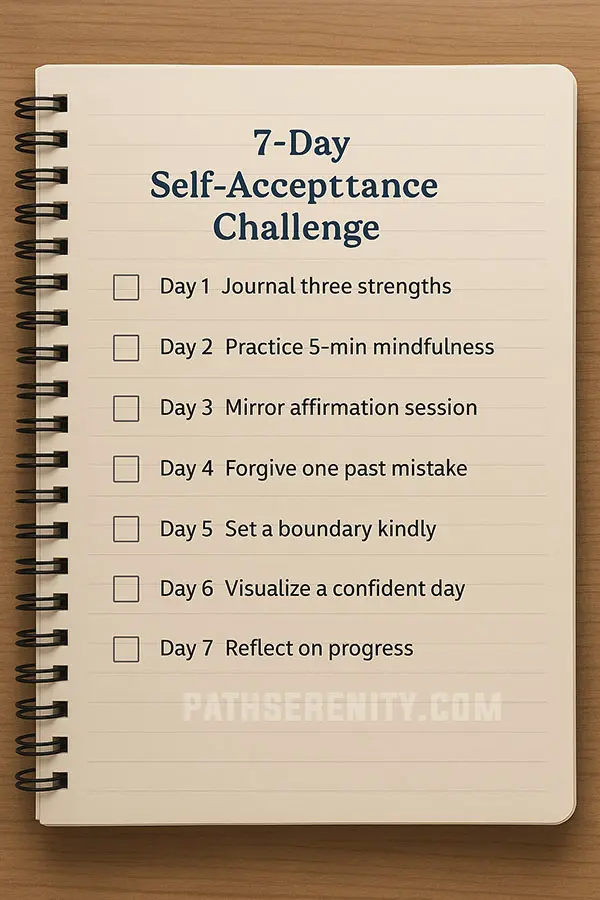
Real-Life Scenarios and Case Studies
Real stories make it click – like hearing a friend spill their guts. Let’s look at career switches and relationship heals; they’ve got that “me too” vibe.
Overcoming Self-Doubt in Career Changes
Take Sarah, who ditched law for graphic design at 35. Self-doubt screamed “You’re too old,” but awareness hit during a workshop. She embraced her creative “flaws,” then grew by freelancing small gigs. Now? Thriving. I switched from marketing to writing after accepting my introversion – no more faking extrovert energy. For more inspo, peek at Careershifters stories. In LGBT+ circles, like a trans friend navigating job hunts, acceptance meant owning their journey as strength, landing a role that fit.

Healing from Past Relationships Through Acceptance
After my breakup, acceptance meant admitting I ignored red flags outta low self-worth. Journaled it out, visualized healthier bonds – healed faster. Case in point: Mike, post-divorce, used mindfulness to embrace his “needy” side, attracting real connection. Therapy helped; see Psychology Today on self-compassion. Hormonally, it balances cortisol, aiding emotional recovery per psych research.
Now, to keep it going, let’s checklist your habits.
Self-Acceptance Checklist
This checklist’s your daily buddy – tick off and track. Tie it to productivity balance tips for sustained wins.
Steps for Daily Practice
Start small: Morning affirmation, midday mindfulness break, evening journal. Build habits gradually; skip a day? No guilt, just restart.
Prevention Tips to Maintain Progress
Watch triggers like social media scrolls – limit ’em. Surround with supportive peeps; ditch toxic ones. Regular self-checks prevent backslides. For long-term, integrate into routines, like our body energy management.
🟨 Checklist: Interactive bullets – rate 1-10:
- My self-talk positivity?
- Embraced a flaw today?
- Took growth action?
- Mindful moment had? Track weekly; adjust as needed.
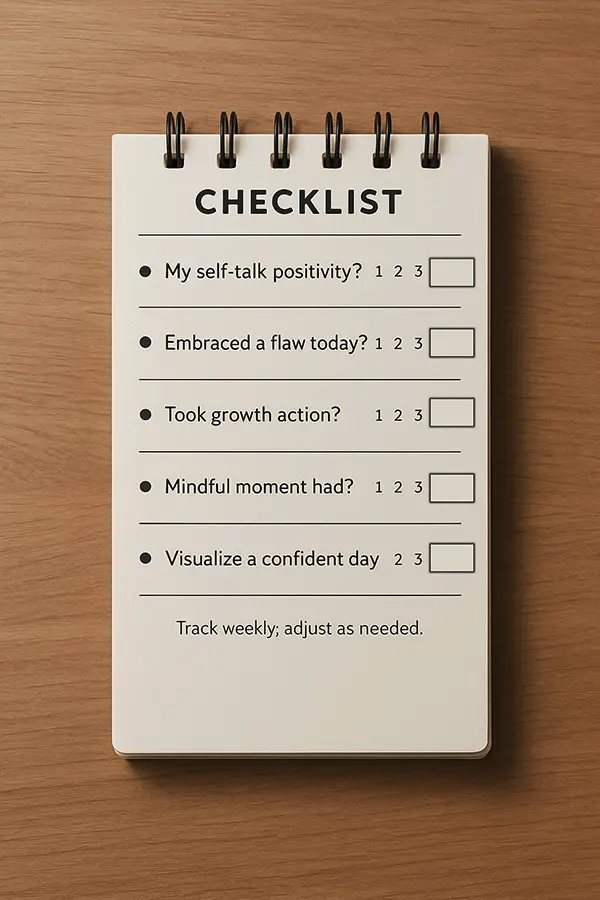
From neuroscience, consistent checks strengthen frontal lobe control, sustaining acceptance gains. But what if roadblocks pop up? We’ll tackle those strategies soon.
Warning Signs and When to Seek Professional Help
We’ve got those checklists humming along to keep your self-acceptance game strong, but sometimes, the struggle runs deeper than a quick journal entry can fix. It’s like noticing your car’s check engine light flickering – ignore it too long, and you’re stranded on the side of the road. I recall this one time in grad school, pushing through endless all-nighters, thinking it was just “normal stress,” until I couldn’t get out of bed for days. That’s when I realized some red flags scream for pro help. In this bit, we’ll spot those deeper issues and chat about snagging the right therapist or coach to guide you through. If you’re feeling that emotional drain tying into physical stuff, like constant fatigue, our take on body-energy management might offer some initial relief before diving deeper.
From a psych lens, low self-acceptance can snowball into chronic anxiety or depression, messing with serotonin levels and amping up cortisol – that stress hormone that keeps you wired but exhausted. Studies show it even tweaks neural pathways in the amygdala, making threats feel bigger than they are. But spotting signs early? Game-changer.
Red Flags Indicating Deeper Issues

Look, red flags aren’t always blaring alarms; sometimes they’re whispery vibes that build up. Things like isolating yourself ’cause you feel unworthy of company, or that nagging inner voice turning every mistake into “proof” you’re a failure. I had a phase where I’d cancel plans last minute, convinced friends were just pity-inviting me – classic sign of self-acceptance dipping into depression territory. Other biggies? Persistent anxiety that spikes your heart rate over small stuff, or even physical symptoms like headaches from bottled-up shame. And hey, for folks in the LGBT+ community, these can hit harder if layered with external invalidation – like internalized homophobia fueling self-doubt, making acceptance feel like climbing a steeper hill. A pal of mine wrestled with that after coming out, where low self-acceptance morphed into avoidance of relationships altogether. 😔 If it’s disrupting sleep, work, or joy, that’s your cue it’s more than DIY territory.
Ever wonder if it’s “just you being dramatic”? Nah, if these persist for weeks, they’re legit signals. Check this Verywell Mind piece on when self-doubt turns serious. But finding help? Let’s make that less daunting.
Finding the Right Therapist or Coach
Picking a therapist is kinda like dating – gotta find that click, or it won’t stick. Start by checking directories like Psychology Today for folks specializing in self-acceptance or cognitive behavioral therapy, which rewires those negative thought loops. I lucked out with a coach who focused on mindfulness, turning my sessions into real breakthroughs instead of awkward silences. Ask about their approach: do they blend talk therapy with practical tools? For deeper dives, look for credentials in ACT (Acceptance and Commitment Therapy), proven to boost self-acceptance by aligning actions with values. And if costs worry you, many offer sliding scales or online options. 😂 Pro tip: first session jitters are normal – I spilled my guts in mine and never looked back.
If emotional boundaries play into your struggles, tie it with our guide on setting healthy ones. Externally, this Harvard Health blog nails why pro help amplifies benefits. Now, what does science say about all this? Let’s geek out on the research.

Research, Studies, and Statistics on Self-Acceptance
Diving into the nitty-gritty data can be eye-opening – it’s not just feel-good talk; self-acceptance has hard evidence backing its punch for mental health. Remember that hike I mentioned way back, where solitude sparked my first real acceptance moment? Turns out, studies echo that solitude can foster it, but let’s unpack the key findings and stats that show how it slashes anxiety and amps up life satisfaction. If you’re chasing inner peace amid chaos, our productivity balance tips weave in nicely here.
Neurologically, embracing self-acceptance quiets the brain’s fear centers, boosting dopamine for motivation while dialing down cortisol spikes – think less rumination, more resilience, per positive psych research. It’s like upgrading your mental OS for smoother runs.
Key Findings from Psychology Studies
One standout study from Harvard links higher self-acceptance to lower emotional distress, showing folks who embrace flaws report 30% less anxiety in daily stressors. Another gem? Research in the Journal of Happiness Studies ties it to contentment beyond just “happiness,” where self-acceptance predicts reduced depression by fostering vulnerability acceptance. I saw this in therapy groups – people sharing “ugly” truths and walking out lighter. Plus, a PMC review highlights how it aligns self-awareness with well-being, cutting ill-being indicators like burnout. It’s fascinating how it even buffers against societal pressures, especially in diverse communities where acceptance combats minority stress.
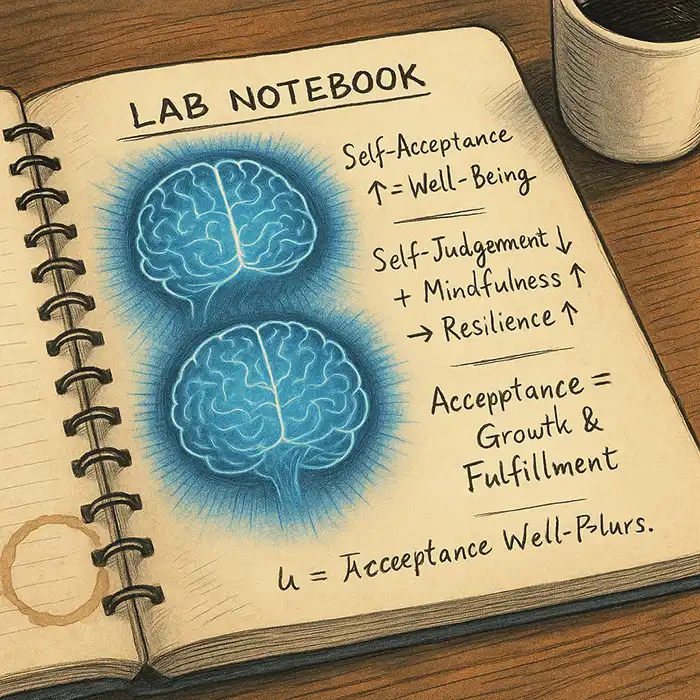
These findings aren’t isolated; they build a case for why skipping self-acceptance tanks mental health. But the numbers? They hit harder.
Surprising Stats on Mental Health Benefits
Get this: around 85% of people with strong self-acceptance report higher life satisfaction, per a meta-analysis linking it to well-being (r=0.31 correlation). Shocking, huh? Another stat: high self-acceptance predicts 20-30% fewer depression symptoms over time, controlling for other factors. And anxiety? Studies show it drops by up to 40% in those practicing acceptance techniques. In one survey, folks with low acceptance were twice as likely to face chronic stress. 😲 Mind-blowing how it ties into everything from relationships to career bounce-back.
For a external deep dive, peep this PMC study on acceptance and well-being. If healing from past hurts resonates, link to our emotional recovery post.
🟨 > Statistic Highlights Box
- 85% higher life satisfaction: Among those embracing self-acceptance, per Journal of Happiness Studies.
- 30% less anxiety: Linked to daily acceptance practices, Harvard Health data.
- 20-40% drop in depression symptoms: Longitudinal psych reviews show this buffer.
- Twice the resilience: Against stress for high acceptors, PMC findings.
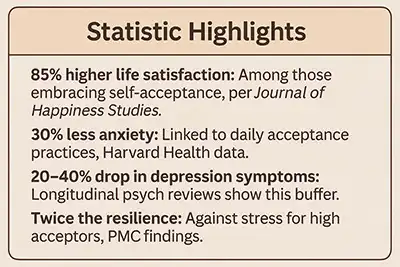
These stats light a fire under why building it matters. Got questions? We’ve got FAQs up next.
Frequently Asked Questions (FAQ)
FAQs are gold for clearing those lingering doubts – like, is this self-acceptance gig really worth the effort? We’ll tackle common ones with straight talk, backed by insights. If digital habits mess with your vibe, our digital wellness strategies can help too.
Is Self-Acceptance the Same as Giving Up on Improvement?
Nah, not even close – it’s the launchpad for real growth, not a white flag. Self-acceptance means owning your now without hate, so you can chase better from a place of kindness, not desperation. Studies show it actually fuels motivation, cutting procrastination by letting you experiment without fear of “failure.” Think: “I’m okay as is, but wanna level up?” Versus forcing change through self-loathing, which burns out fast. A client I knew thought acceptance meant stagnation, but once embraced, she nailed career goals easier. How-to: Start small, affirm strengths while eyeing tweaks – no “giving up” here.

How Long Does It Take to Build Self-Acceptance?
It varies, dude – could be weeks for basics, months for deep roots, depending on your backstory. Research pegs noticeable shifts in 4-6 weeks with daily practices like journaling, but full rewiring? Up to a year for trauma-layered stuff. I took about three months to feel steady, mixing mindfulness with therapy. Protest like “this takes forever!”? Patience pays; consistency trumps speed. Step-by-step: Track weekly wins, adjust tools – it’s a marathon, not sprint.
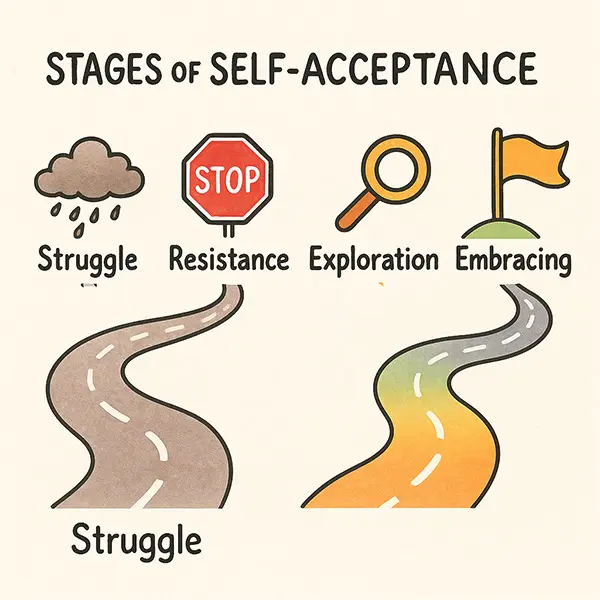
Can Self-Acceptance Improve My Relationships?
Totally – it dials down people-pleasing and amps authenticity, drawing healthier connections. Stats show high acceptors have 25% stronger bonds, less conflict from projection. In LGBT+ spaces, it helps navigate identity in partnerships without shame, fostering trust. My relationships leveled up once I stopped seeking validation; convos got realer. How-to: Practice vulnerability shares – watch bonds deepen. If people-pleasing rings bells, our relationships guide has tips.
These clear things up? For more, resources await.
Resources and Reliable Links
Wrapping with goodies to keep your journey rolling – books, pods, and groups that dive deeper into self-acceptance. It’s like stocking your mental toolkit for ongoing wins.
Books and Podcasts for Deeper Dive
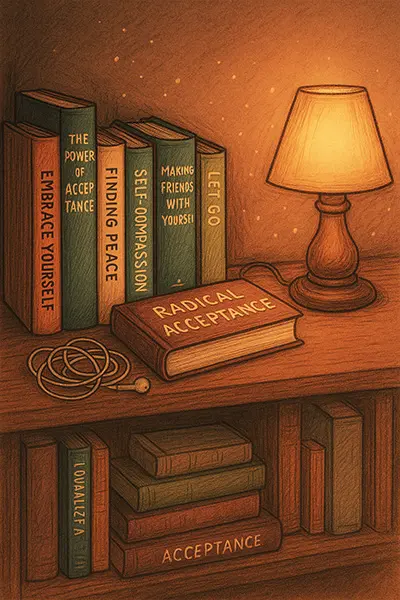
Books? Grab “Radical Acceptance” by Tara Brach – it’s a game-changer for embracing flaws with compassion, full of real-life stories that hit home. Or “The Gifts of Imperfection” by Brené Brown, unpacking vulnerability’s power. For pods, “Oprah’s Super Soul Conversations” drops wisdom on self-love, with guests sharing raw journeys. “Being Well” tackles self-worth episodes that blend psych with practicals – listened to one on a long drive and felt shifts immediately. 😊 Another? “The Self Esteem and Confidence Mindset” for bite-sized boosts.
For science-backed reads, this Self-Compassion.org list is solid.
Online Communities and Support Groups
Communities keep you accountable – try HeyPeers for free peer-led groups on mental health, where folks share self-acceptance wins anonymously. NAMI’s virtual support circles are ace for nationwide chats, especially if anxiety tags along. For LGBT+ focused, The Tribe offers safe spaces to unpack identity and acceptance without judgment. I joined one during a rough patch; hearing “me too” moments was healing. Mind’s Side by Side forum lets you connect 24/7 on lived experiences. Start lurking, then post – it’s low-pressure growth.
In closing, self-acceptance isn’t a destination; it’s the steady hum that makes life’s chaos bearable, rewiring your brain for less fear and more flow, as neuro studies confirm with boosted prefrontal activity and balanced hormones like oxytocin for that self-connection vibe. You’ve got the tools now – why not grab our free self-acceptance quiz or subscribe for more tips? Start small today; your future self will thank ya. Keep shining.
Don’t miss related articles
Related resources
- PositivePsychology.com – “What Is Self-Acceptance? 25 Exercises + Definition & Quotes”
- Psychology Today – “The Path to Unconditional Self-Acceptance”
- PMC (NCBI) – “The Importance of Awareness, Acceptance, and Alignment With the Self”
✨ Last updated on 16.08.2025
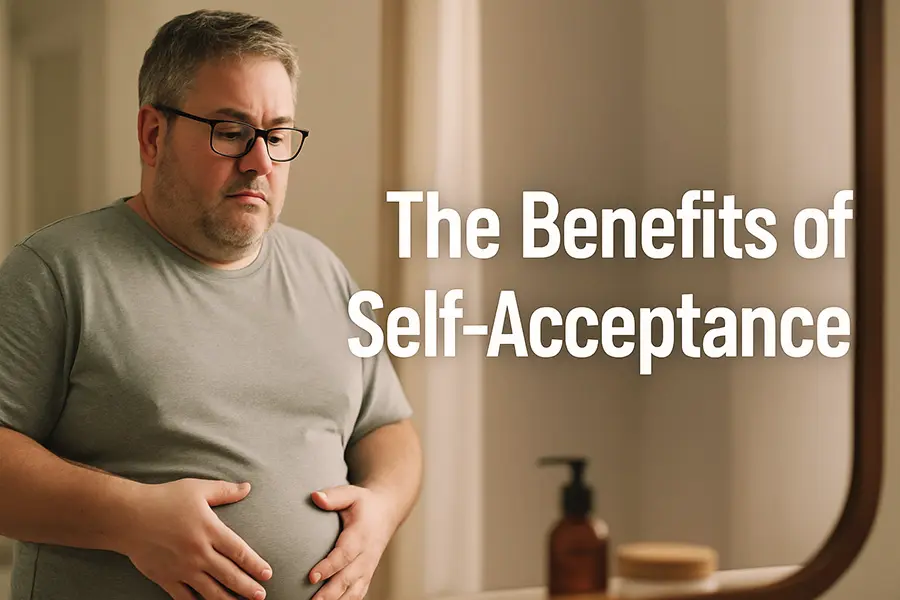










Leave a Reply